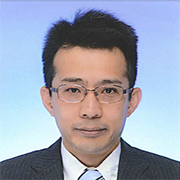A .gov website belongs to an official government organization in the United States.
A lock () or https:// means you've safely connected to the .gov website. Share sensitive information only on official, secure websites.

The SPARC (Stratosphere-troposphere Processes And their Role in Climate) Reanalysis Intercomparison Project (S-RIP) is a coordinated activity to: (1) compare all (or some of the newer) reanalysis data sets for various key diagnostics in the stratosphere, upper troposphere, and lower mesosphere; (2) understand the causes of differences among reanalyses; (3) provide guidance on the appropriate usage of various reanalysis products in scientific studies; and (4) connect such activities with future improvements in the reanalysis products by establishing collaborative links between the reanalysis centers and the SPARC community. In July 2021, the S-RIP published the Final Report with 12 chapters as early online release.
The seminar talk will include:
Masatomo Fujiwara received his PhD degree in 1999 from the University of Tokyo, Japan. He has been Associate Professor of Hokkaido University, Japan, since 2003. In the 1990s to 2000s, his main scientific interest was in the dynamical and chemical processes in the Tropical Tropopause Layer (TTL). Prof. Fujiware participated in various field campaigns in the tropics, in particular in Indonesia, to make balloon-borne ozone and water-vapor measurements. For the interpretation of these measurement results, he extensively used global-atmospheric reanalysis data. In 2011, he proposed a project, SPARC Reanalysis Intercomparison Project, S-RIP (pronounced as "es rip"), which is the topic of the talk.
ALL Seminar attendees agree not to cite, quote, copy, or distribute material presented without the explicit written consent of the seminar presenter. Any opinions expressed in this seminar are those of the speaker alone and do not necessarily reflect the opinions of NOAA or CSL.